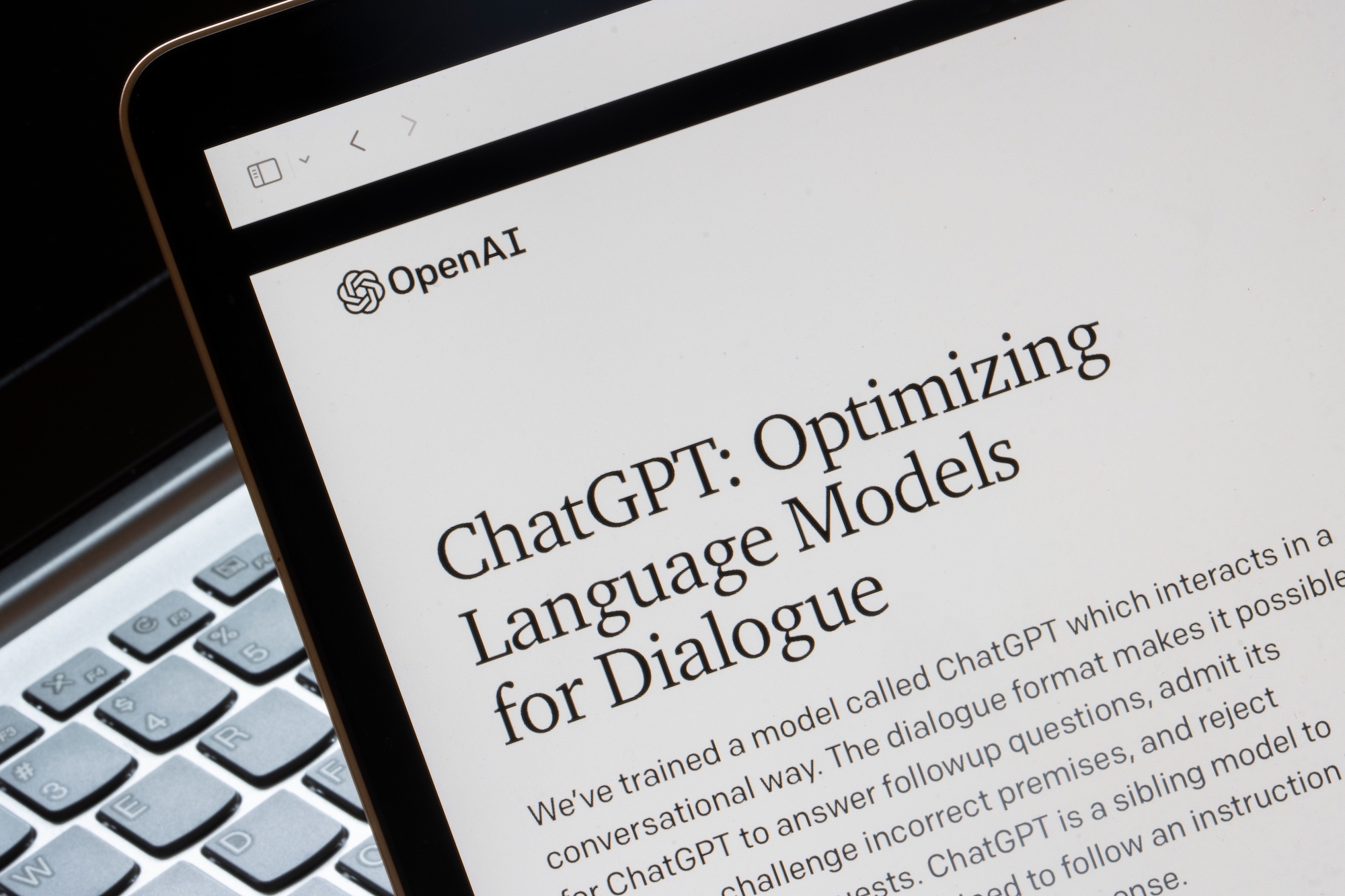At the end of 2022, OpenAI introduced the world to ChatGPT.
Since its launch, ChatGPT hasn’t shown significant signs of slowing down in developing new features or maintaining worldwide user interest.
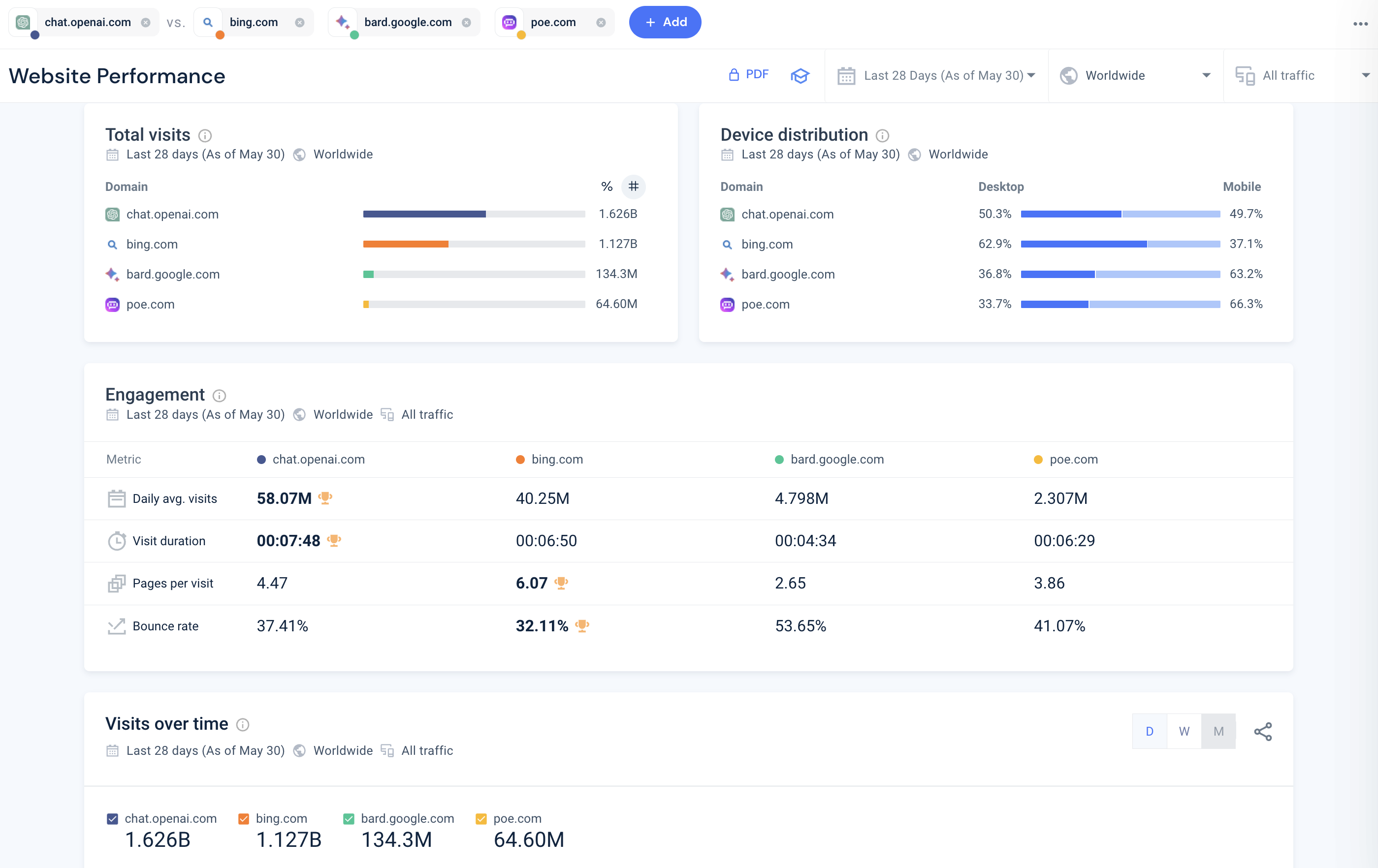 Screenshot from Similarweb Pro, June 2023
Screenshot from Similarweb Pro, June 2023Continue reading the history of ChatGPT with a timeline of developments, from OpenAI’s earliest papers on generative models to acquiring 100 million users and 200 plugins.
History Of ChatGPT: A Timeline Of Developments
June 16, 2016 – OpenAI published research on generative models, trained by collecting a vast amount of data in a specific domain, such as images, sentences, or sounds, and then teaching the model to generate similar data. (OpenAI)
September 19, 2019 – OpenAI published research on fine-tuning the GPT-2 language model with human preferences and feedback. (OpenAI)
January 27, 2022 – OpenAI published research on InstructGPT models, siblings of ChatGPT, that show improved instruction-following ability, reduced fabrication of facts, and decreased toxic output. (OpenAI)
November 30, 2022 – OpenAI introduced ChatGPT using GPT-3.5 as a part of a free research preview.
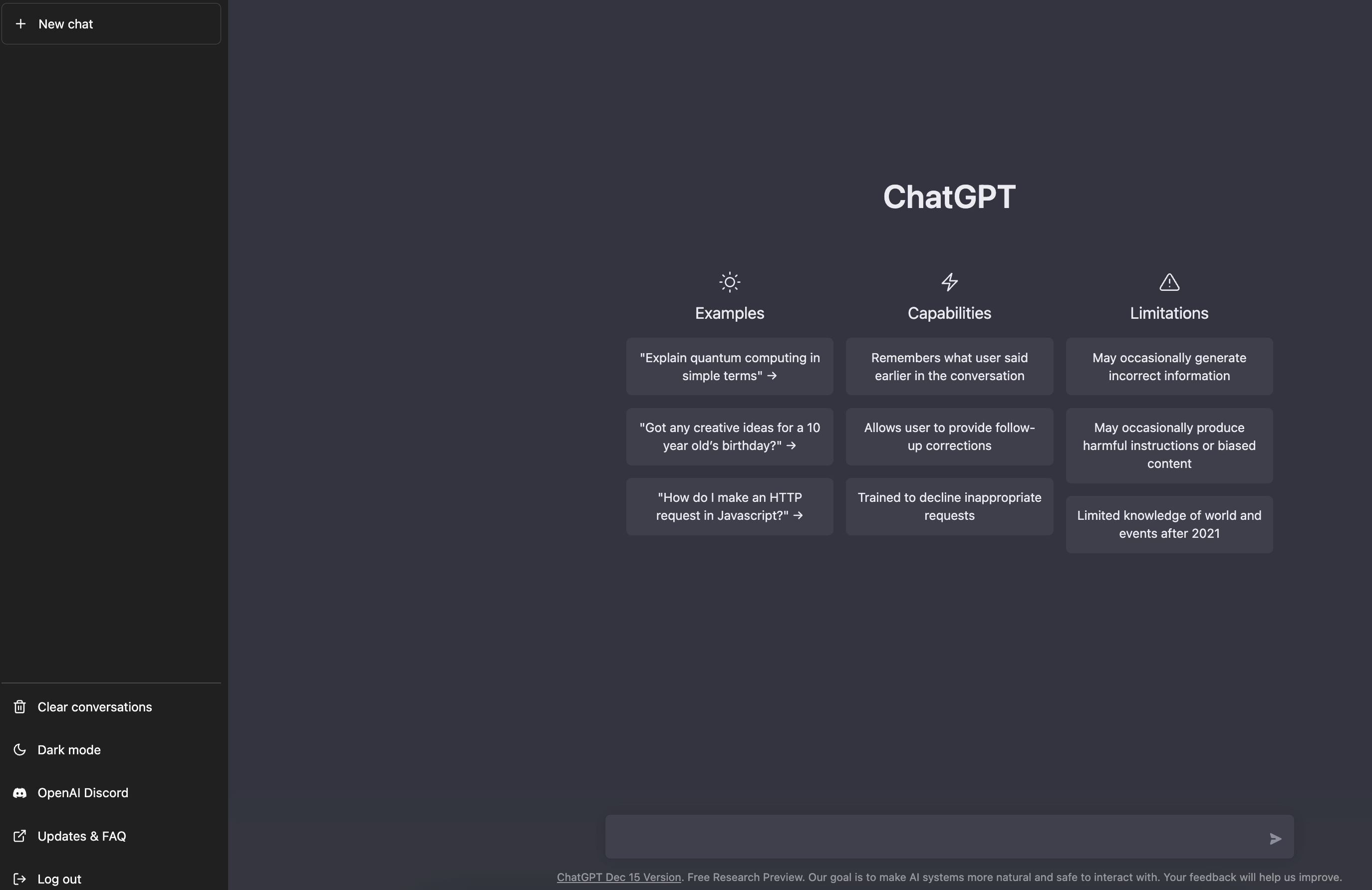 Screenshot from ChatGPT, Dec 2022
Screenshot from ChatGPT, Dec 2022February 1, 2023 – OpenAI announced ChatGPT Plus, a premium subscription option for ChatGPT users offering less downtime and access to new features.
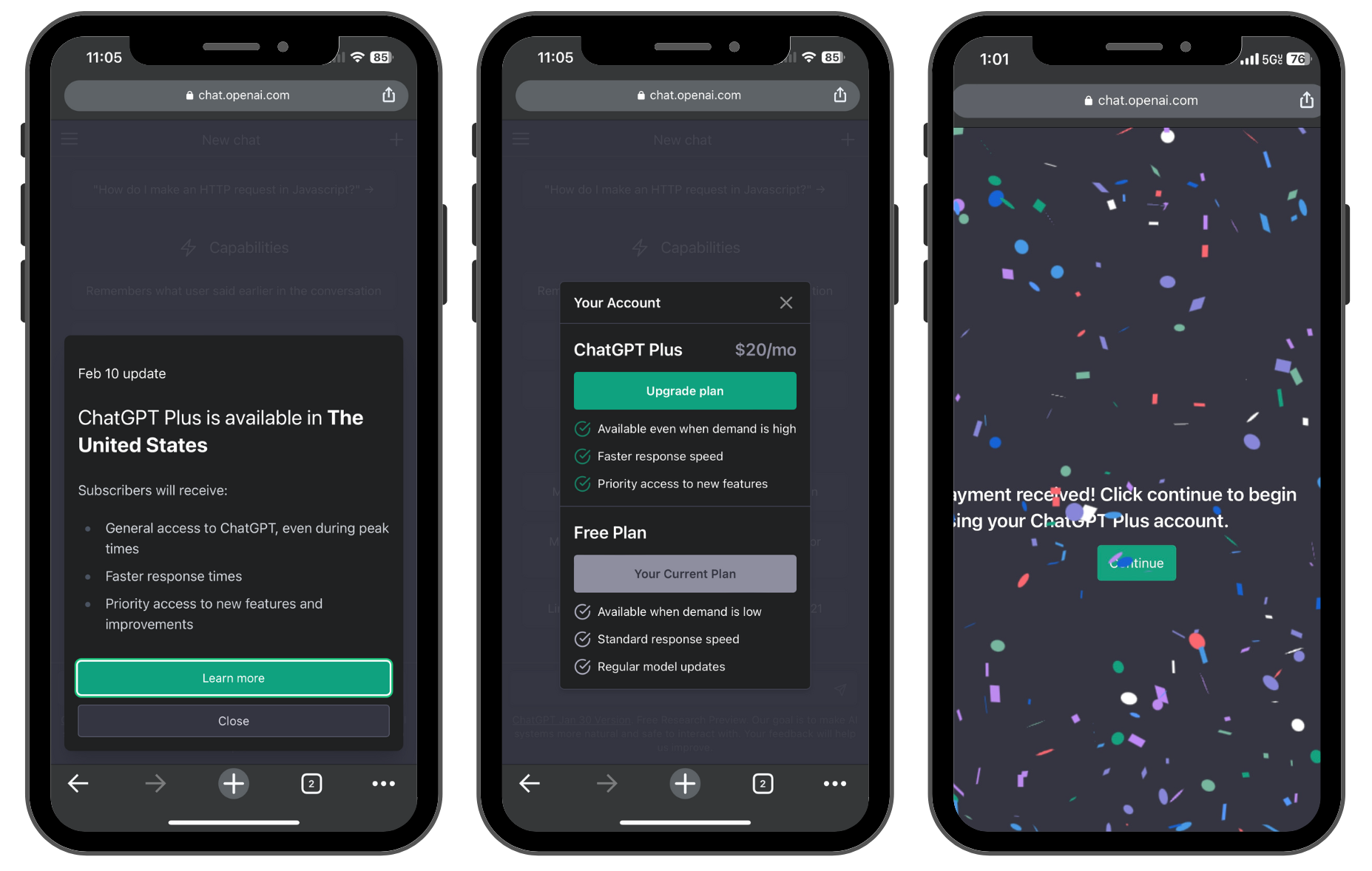 Screenshot from ChatGPT, February 2023
Screenshot from ChatGPT, February 2023ChatGPT reached 100 million users faster than TikTok, which made the milestone in nine months, and Instagram, which made it in two and a half years. (Reuters)
February 7, 2023 – Microsoft announced ChatGPT-powered features were coming to Bing.
February 22, 2023 – Microsoft released AI-powered Bing chat for preview on mobile.
March 1, 2023 – OpenAI introduced the ChatGPT API for developers to integrate ChatGPT-functionality in their applications. Early adopters included SnapChat’s My AI, Quizlet Q-Chat, Instacart, and Shop by Shopify.
March 14, 2023 – OpenAI releases GPT-4 in ChatGPT and Bing, which promises better reliability, creativity, and problem-solving skills.
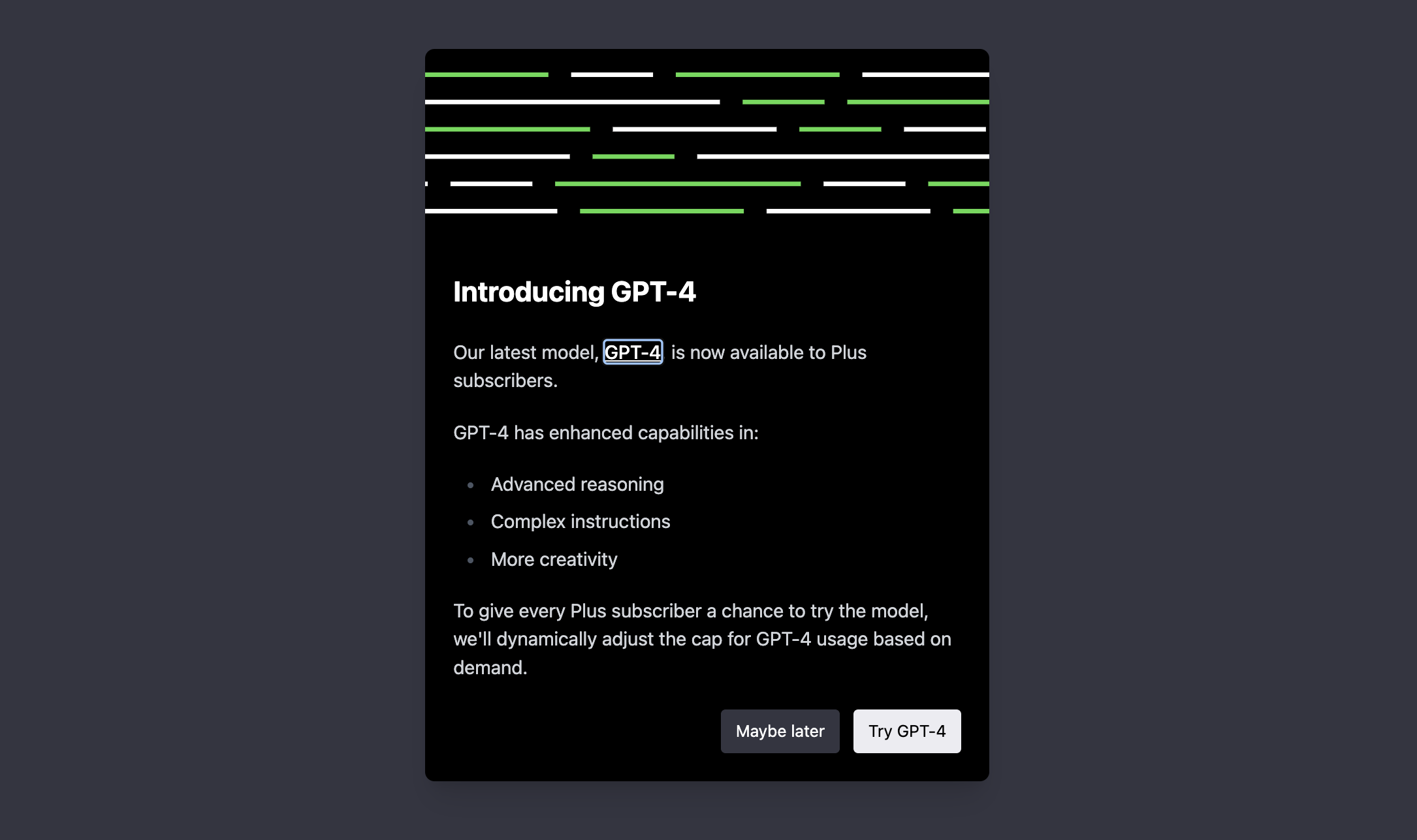 Screenshot from ChatGPT, March 2023
Screenshot from ChatGPT, March 2023March 14, 2023 – Anthropic launched Claude, its ChatGPT alternative.
March 20, 2023 – A major ChatGPT outage affects all users for several hours.
March 21, 2023 – Google launched Bard, its ChatGPT alternative.
March 23, 2023 – OpenAI began rolling out ChatGPT plugin support, including Browsing and Code Interpreter.
March 31, 2023 – Italy banned ChatGPT for collecting personal data and lacking age verification during registration for a system that can produce harmful content.
April 23, 2023 – OpenAI released ChatGPT plugins, GPT-3.5 with browsing, and GPT-4 with browsing in ALPHA.
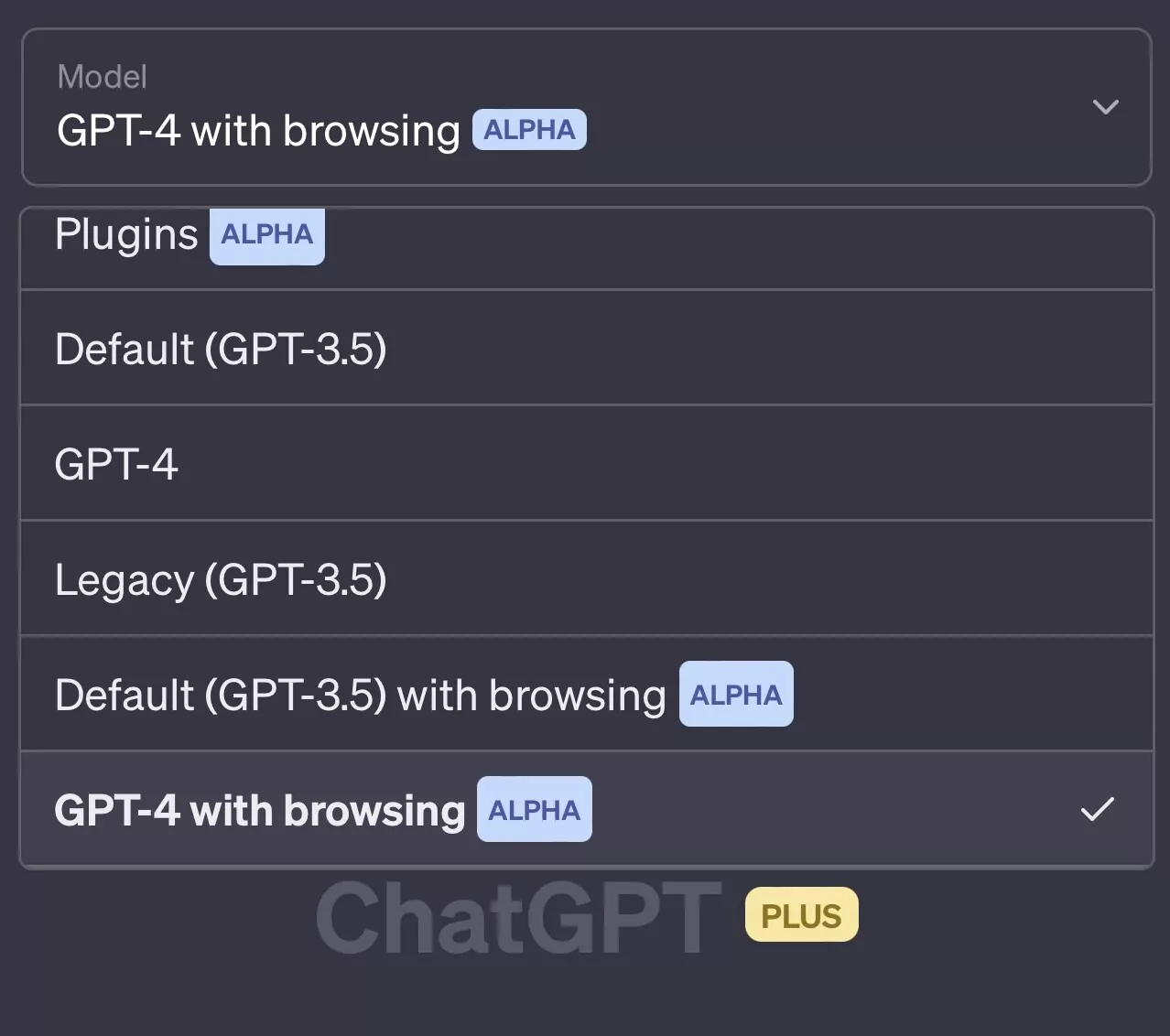 Screenshot from ChatGPT, April 2023
Screenshot from ChatGPT, April 2023April 25, 2023 – OpenAI added new ChatGPT data controls that allow users to choose which conversations OpenAI includes in training data for future GPT models.
April 28, 2023 – The Italian Garante released a statement that OpenAI met its demands and that ChatGPT service could resume in Italy.
May 15 – 2023 – OpenAI launched the ChatGPT iOS app, allowing users to access GPT-3.5 for free. ChatGPT Plus users can switch between GPT-3.5 and GPT-4.
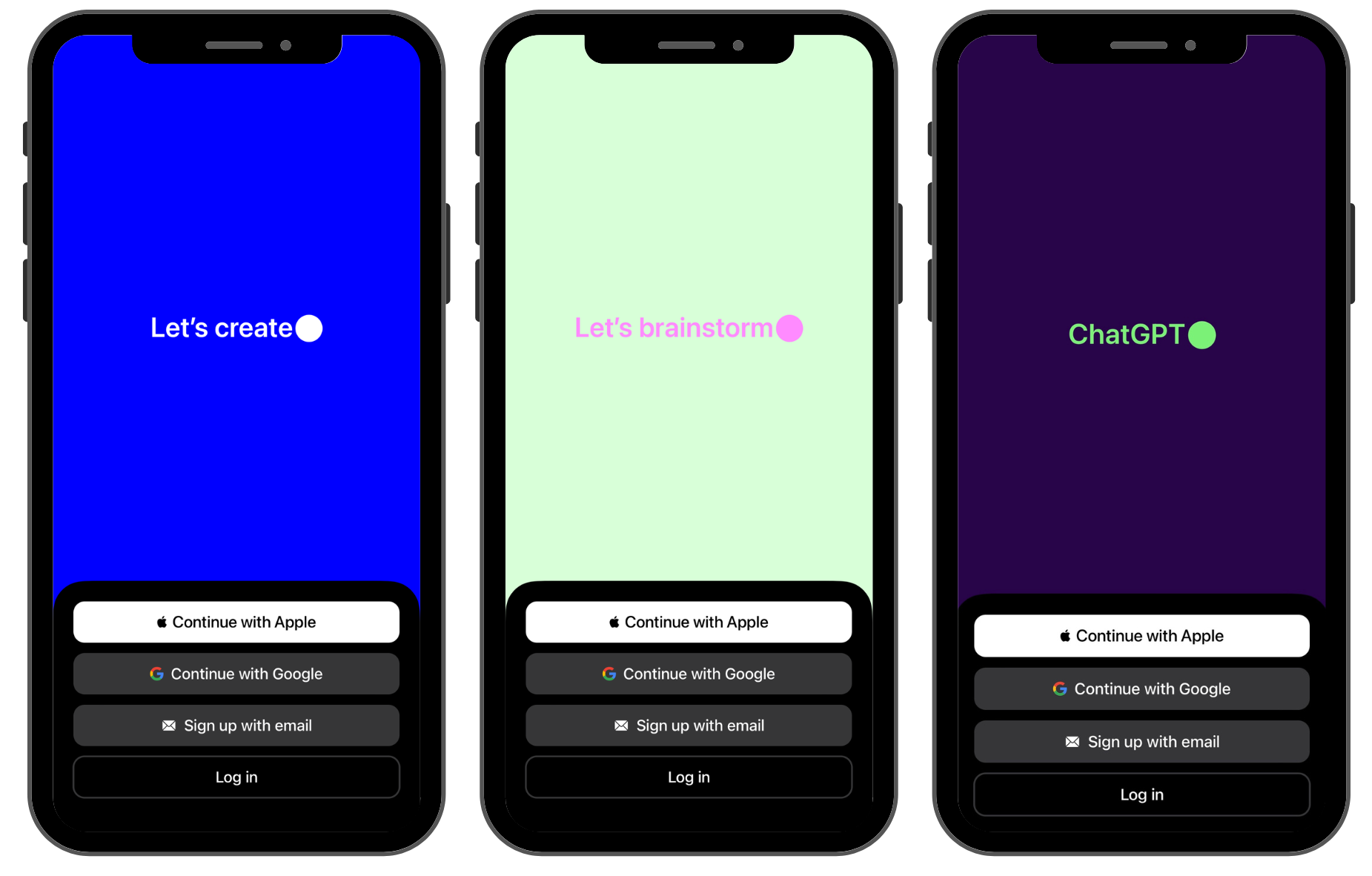 Screenshot from ChatGPT, May 2023
Screenshot from ChatGPT, May 2023May 16, 2023 – OpenAI CEO Sam Altman appears in a Senate subcommittee hearing on the Oversight of AI, where he discusses the need for AI regulation that doesn’t slow innovation.
May 23, 2023 – Microsoft announced that Bing would power ChatGPT web browsing.
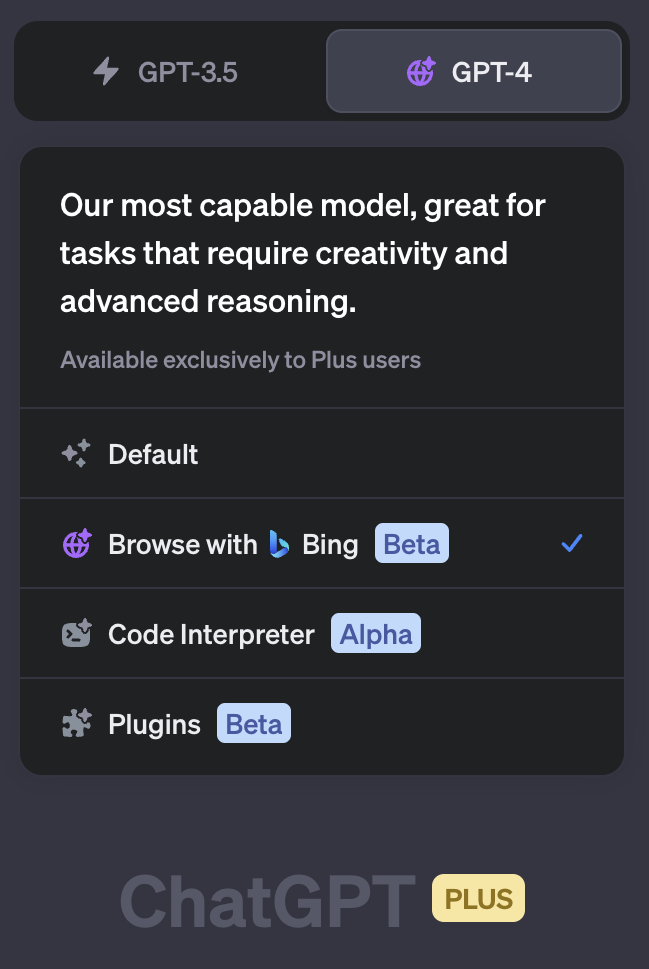 Screenshot from ChatGPT, May 2023
Screenshot from ChatGPT, May 2023May 24, 2023 – Pew Research Center released data from a ChatGPT usage survey showing that only 59% of American adults know about ChatGPT, while only 14% have tried it.
May 25, 2023 – OpenAI, Inc. launched a program to award ten $100,000 grants to researchers to develop a democratic system for determining AI rules. (OpenAI)
May 31, 2023 – ChatGPT Plus users can now access over 200 ChatGPT plugins.
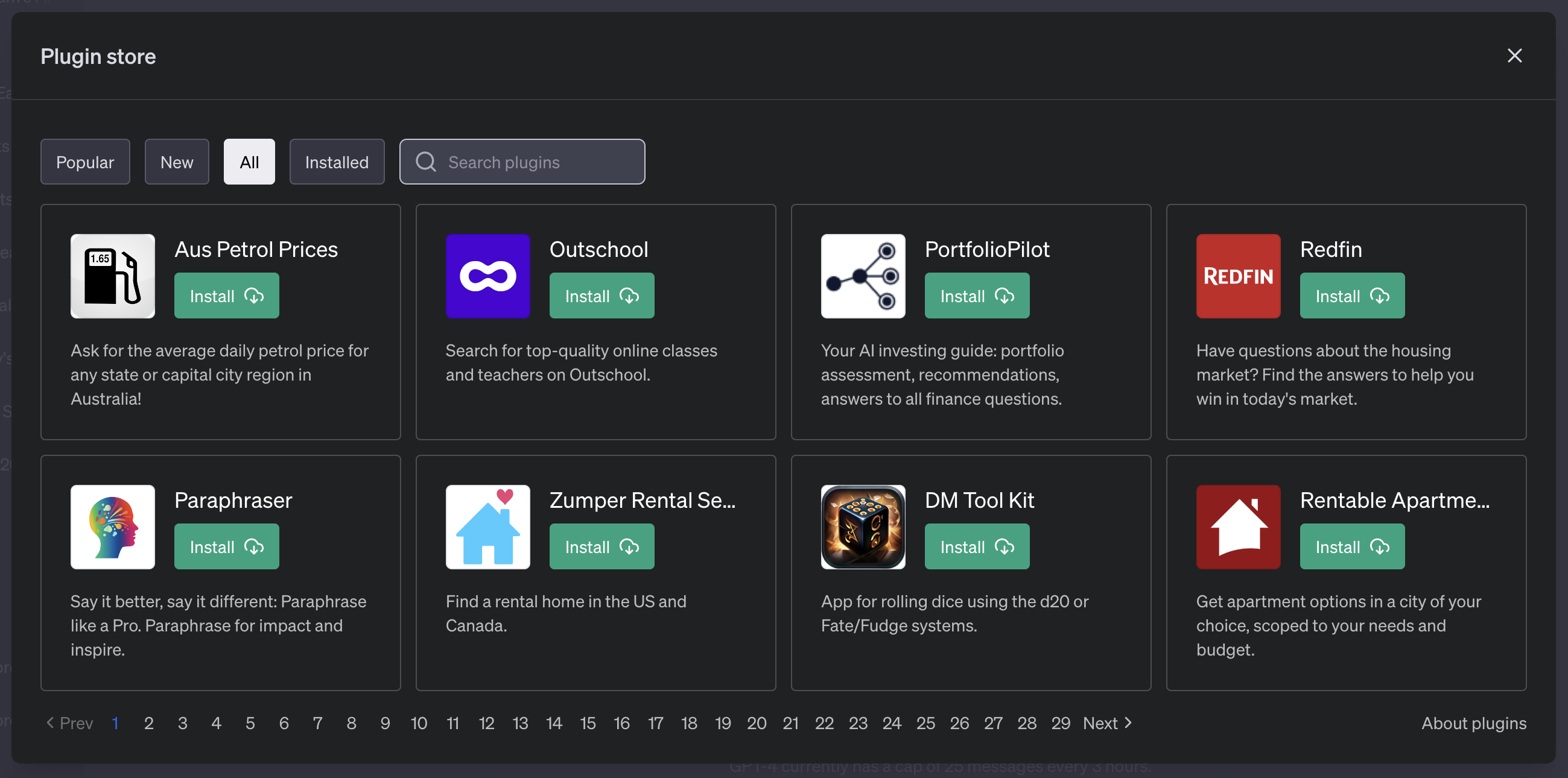 Screenshot from ChatGPT, May 2023
Screenshot from ChatGPT, May 2023June 1, 2023 – ChatGPT traffic surpasses competing generative AI chatbots in May. (Similarweb Pro)
The Future Of ChatGPT And Alternative Generative AI Chatbots
What does the future of ChatGPT have in store? That depends on many factors, including the following.
- Will the government decide to regulate AI? If so, who will handle it, how will they create legislation that matches rapid AI developments, and will regulation affect the innovation of future GPT models?
- Will OpenAI win lawsuits against generative AI tools, or will the outcome of those cases slow the development of future training models?
- Will competitors build ChatGPT alternatives, or will government regulation, fear of litigation, and increased API costs stifle innovation?
Featured image: Tada Images/Shutterstock
